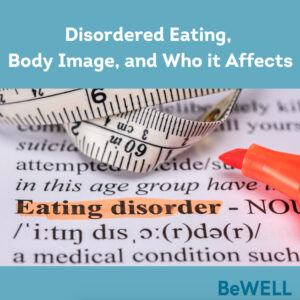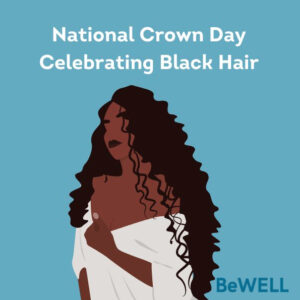Losing a pregnancy, at any stage, is a uniquely individual experience and can be extremely difficult to navigate for many individuals, expecting parents, and/or couples. It can be a shocking, deeply saddening, or even traumatic experience for the pregnant person, their partner, and their families. It is important to remember that you are not alone, and while miscarriage was once considered taboo to discuss, many people experience this type of loss and talking about it openly will help more individuals who are currently struggling or may struggle with this type of loss in the future.
Liz Buehler Walker, Director of Health and Wellbeing at be.Well and co-founder of Indigo 108, has worked with individuals who have lost their pregnancy at all stages; from very early on, to people who have experienced their loss at, or shortly after birth. “Often people don’t talk about pregnancy loss, so when someone goes through it, they feel ignored or like something is wrong with them because of this experience. It feels shocking, extra shocking, because it’s never really been brought up”. The loss of a pregnancy is something that the therapists and healthcare providers at be.Well are prepared to help individuals, as well as couples, grieve, make sense of, and begin to heal from.
Miscarriage and Mental Health
According to the MAYO Clinic in 2021, between 10–20% of known pregnancies end in miscarriage each year. While this number implies that the loss of a pregnancy is fairly common, it doesn’t make it any easier for those who experience it, in fact, this loss can feel quite devastating. Losing a pregnancy can have a tremendous impact on one’s mental health, and can persist for months or even years after the loss is experienced. Fear, anxiety, sadness, depression, hopelessness, and even PTSD symptoms are not uncommon following a loss of a pregnancy, even in the early stages.
Everyone who experiences a loss, at any stage in their pregnancy, will have a unique and individual grief process. For example, some individuals who lose a pregnancy early in the first trimester, may be ready to begin trying to get pregnant again as soon as they can. While others may mourn the loss of their pregnancy differently and may find it difficult and scary to try to get pregnant again. “Some people are really devastated by an early pregnancy loss, whereas other people haven’t really connected in a particular way, so they’re not necessarily having a deep or a long period of grief. Both of those experiences and everything in between is completely valid.” Says Liz. Just like every person, every pregnancy loss is different and each individual needs the understanding and support to grief in their own unique way.
Partners and families also experience grief with the loss of a pregnancy in their own unique way, and some may suffer from similar symptoms as the pregnant person; fear, sadness, anxiety, depression, and trauma to name a few. Physical intimacy may suffer during this time, as a couple is experiencing something shared, but differently. According to the American Psychological Association, non pregnant partners often grapple with loss of sexual intimacy with their partner following a miscarriage. Fear of getting pregnant again and fear of potentially facing another loss, not feeling in control over one’s own body, feeling alone in your loss and grief, and hormonal changes, could all be factors in why physical intimacy is difficult following a pregnancy loss.
Mourning and Grief After The Loss of a Pregnancy
The loss of a pregnancy can be a complicated one, because of how individual the experience is. If you or your loved one is suffering after the loss of a pregnancy, it is important to remember that any and every response is a valid and normal one. Individuals who experience a miscarriage may be mourning more than just the loss of the pregnancy itself. Liz describes this as a shift and a loss in relationships; “One of the things that is happening with pregnancy loss is the loss of relationships; The loss of what this relationship might have grown into with the pregnancy or child, and also the relationship with the pregnant person’s own physical body.” Liz describes this grief as more than just a physical loss, but as a layered and complicated mix of emotions that can include mourning the loss of a person’s hopes, reproductive dreams, trust in their own physical ability, the vision of the future, one’s identity, and the expectations they had about their pregnancy.
Pregnancy and the loss of pregnancy are very physical experiences, which sets this type of loss apart from other types. This grief can manifest itself in very physical ways and the loss can feel like a bodily betrayal. Liz explains that, “The loss of a pregnancy can feel like a betrayal and that the pregnant individual can no longer depend on their physical bodies.” Liz, who specializes in pre and postnatal yoga, meditation, and breathing techniques, explains how, through her work, she is able to use the physical body to heal from this type of loss. “Traditional therapy is really helpful for working through the betrayal, emotions and fears. When it comes to the feelings in the body- being able to trust your body, to feel good in your body, to feel pleasure and joy in your body- I often find that my work can help. Sometimes using the techniques, whether it’s a breathing technique, meditation, affirmation techniques, or movement, that one had used while being pregnant, can help create some continuity in the body and help to not split these two selves (pregnant and no longer pregnant) and experiences apart.”
Be.Well is Here to Help
Just as each pregnancy is different for each individual, the experience, the process of healing, and the decisions that are made before, during, and after the loss of a pregnancy is also unique and individual. Talking about your experience, challenges, fears, and emotions in a safe and open way, will give your feelings validity and help you begin your healing journey.
If you are looking for a safe and judgment-free space to support you through the loss of a pregnancy or miscarriage, be.Well and Indigo 108 are here to help. With offices in Midtown Manhattan, New York and Hoboken, as well as virtual therapy sessions, Indigo 108 and Be.WELL. can help you take control of your mental well being, and navigate your way through this challenging journey, by connecting your mind, body, and spirit.



